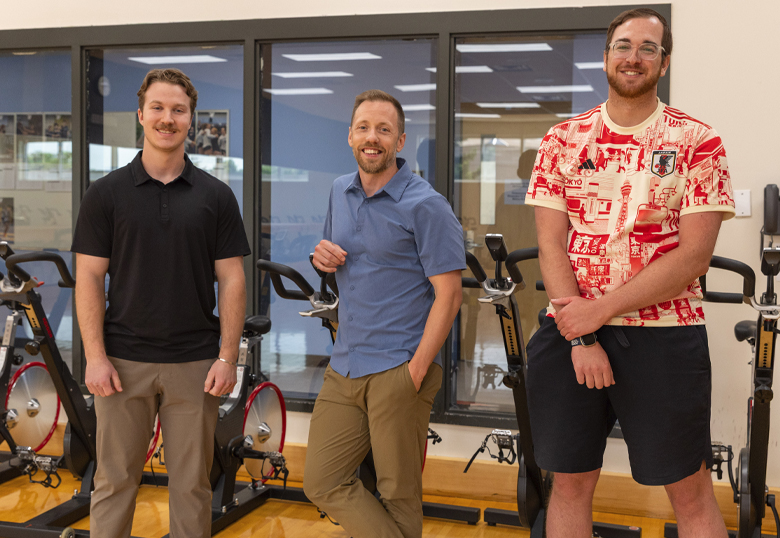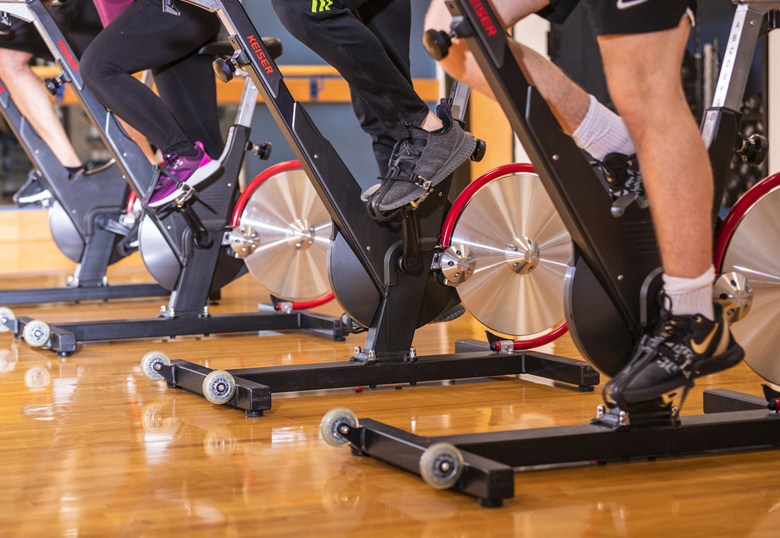Three research projects exploring the connection between physical exercise and cognitive function, led by a Lethbridge Polytechnic instructor and two University of Lethbridge students, and supported by a Social Sciences and Humanities Research Councill (SSHRC) Exchange grant, have been selected for presentation at the European College of Sports Science (ECSS) annual conference in Rimini, Italy next month.

The projects are a result of collaboration between the polytechnic’s Centre for Health and Wellness, Centre for Applied Research, Innovation and Entrepreneurship and students and alumni from both Lethbridge Polytechnic and the University of Lethbridge.
Dr. Simon Schaerz, instructor, Lethbridge Polytechnic Centre for Health and Wellness, and researcher, Centre for Applied Research, Innovation and Entrepreneurship, says all three projects demonstrate that physical activity aids in building cognitive skills, particularly in youth.
“Physical exercise teaches more than just running and sports; it teaches teamwork, focus, problem solving and adapting to changing situations,” says Schaerz. “These are key concepts in cognitive development that could increase proficiency in tasks among youth, adults and elders.”
Schaerz will present a research project he led that considered the use of physical activity to improve executive function, including inhibitory control, working memory and cognitive flexibility, for the polytechnic’s esports team. Following moderate intensity cycling, participants were given skill testing tasks and then engaged in simulated gameplay.

“Preliminary results show inhibitory control and working memory saw noticeable improvements,” he says. “These improvements, while telling, highlight the need for further assessment of the connection and significance between the two tasks.”
David Selles, a Lethbridge Polytechnic graduate (Digital Communications and Media, 2018) and current kinesiology student at the University of Lethbridge, developed a separate project that focused on creating a framework to help teachers in training develop physical education programs that support students’ executive function. Selles says by designing activities that challenge both body and mind, teachers can contribute to the growth of both students’ physical and cognitive development.
He adds previous research has shown how curriculum development and content integration can help educators merge exercise science with classroom instruction.
"Our goal with this research is to better equip teachers with an understanding of activities that not only provide executive function benefits but also align with current physical activity curriculum standards.”
Xander Fox, a recent bachelor of science graduate of the University’s kinesiology program, completed a project examining the use of progressive overload in long term exercise intervention trials to improve executive function. He describes progressive overload as the process of increasing physical challenges over time to enhance outcomes.
“We know resistance training can improve executive function,” says Fox. “While many studies have looked at long-term effects of variables, like frequency, intensity, time and type of exercise, few have considered dynamic adjustments of these variables, known as progressive overloads, and how they impact executive function.”
Fox performed a scoping review of published research and noted a lack of content for resistance training. Out of 493 articles initially screened, just two articles were found to specifically investigate the issue.
“Most research in this area tends to focus on older individuals and youth, particularly looking at cognitive decline and development, respectively,” he says. “Our hope is this work brings to light the gap in existing research.”
The ECSS annual conference runs from July 1 to 4.
*This story was first published by Lethbridge Polytechnic
